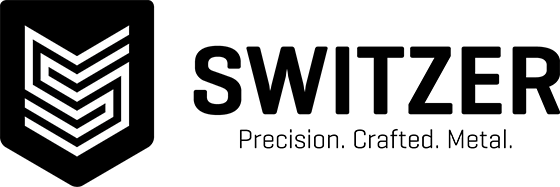How Chemical Etching Creates a Better Industrial Filter

Filters and screens might seem like simple, straightforward parts, but they play a crucial role in industrial machines.
Technological advancements in the modern world require innovative changes to industrial machinery, but OEMs face tight margins and limited time. Cutting-edge technology can provide screens that improve performance without having to redesign machines.
Many traditional screens, sieves and filters are made of wire mesh. But modern designs have produced a better product. Chemical etching develops stronger, more durable screens and sieves, improving equipment quality and enhancing filtration.
Etched metal filters bring new possibilities to the world of filtration, delivering cost-efficient updates to machines along with customized solutions and tremendous flexibility to design challenges.
What Types of Machines Use Filters?
Filters, sieves and screens are critical components in many different machines, including agricultural, wastewater, food and pharmaceutical equipment. Industrial centrifuges require reliable filters to properly separate solids from liquids.
Industrial filters are used in equipment designed to:
- Remove fat from milk
- Separate pulp from juice
- Purify wastewater and remove contaminants
- Pull water from laundry in washing machines
- Drill and refine oil
- Isolate blood cells and plasma
Precise filtration is an integral part of each of these applications and many more.
Chemically Etched Filters Are More Durable
Traditional woven wire filters are affordable, but they’re not durable. Over time, wire mesh loses its structural integrity, creating inconsistency in the filtration process. Frequent filter replacement wastes time and money.
Chemically etched filters are stronger and more durable. They’re built to last and don’t lose their shape over time.
Binding is another issue that shortens the lifespan of woven mesh filters. When binding occurs, particles stick onto the filter, clogging the pores and preventing quality filtration. Etched filters are designed to prevent blinding, increasing the filter’s longevity.
A One-Piece Design Offers Advantages
Woven mesh filters require multi-piece construction. This involves creating a cartridge or a frame, then attaching woven wire onto that base.
Chemically etched filters provide a unique one-piece design that offers advantages. In these filters, there’s no risk of the wire separating from the frame.
Etching also allows for versatility in size and shape. Manufacturers of chemically etched filters can design them to fit into any space.
Versatile filtration design allows for optimizing performance within existing equipment. OEMs can customize screens to fulfill individual size, shape and function requirements.
Higher Quality Filtration
Newer innovations to screens and sieves offer more than just durability – they also provide higher quality filtration and more precise segmentation.
When a machine’s function involves separating particles, maintaining consistency is key. With woven wire screens, pore size can be inconsistent, leading to a variety of particle sizes slipping through.
The consistent pore size of etched metal sieves and screens, on the other hand, ensure uniformity and precision in the separation process, allowing machines to do their job more efficiently and reliably.
Chemical Etching: The Future of Filtration
It’s clear that the future of filtration demands a more versatile, durable and high-performing product. Chemical etching is the answer.
As OEMs search for better, more reliable products, metal etching continues to provide cutting-edge filtration solutions and innovative design opportunities. Learn more about the potential of chemical etching in metal fabrication by downloading our free guide, 3 Ways Chemical Etching Improves Your Metal Parts.
Read More →


